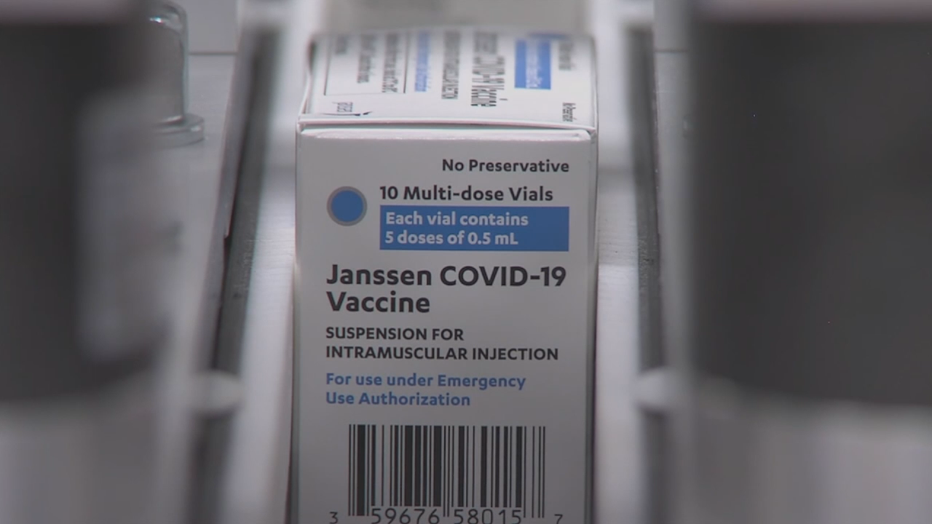Experts answer questions with Johnson & Johnson vaccine on hold

Experts answer questions with Johnson & Johnson vaccine on hold
Medical experts say people who have already received the single-dose Johnson & Johnson vaccine should not panic.
MILWAUKEE - The Wisconsin Department of Health Services (DHS) instructed vaccine providers on Tuesday, April 13 to stop administering the Johnson & Johnson COVID-19 vaccine due to a federal review of adverse side effects reported.
The Centers for Disease Control and Prevention (CDC) and U.S. Food and Drug Administration (FDA) issued a statement saying six cases of a rare and severe type of blood clot have been reported in the U.S. out of 6.8 million Johnson & Johnson vaccine doses given.
As those safety issues are investigated, the vaccine will not be administered. Still, medical experts say people who have already received the single-dose Johnson & Johnson vaccine should not panic.
"It's rare, so people shouldn't be overly alarmed," said Dr. Roy Silverstein, professor and chair of MCW's Department of Medicine.
Silverstein anticipates officials will take their finger off the 'pause' button eventually, but said it's hard to determine when.
Of the near 7 million Johnson & Johnson vaccine doses administered in the U.S., six women between the ages of 18 and 48 have experienced unusual blood clotting in the brain's venous sinuses.
"The syndrome is called cerebral venous sinus thrombosis," Silverstein said. "What makes it unusual is these blood clots have been associated with a low blood platelet count -- the platelets are the cells in the blood that help the blood to clot, so it's a little bit paradoxical or unusual that in the presence of a blood clot, the blood platelet count is low."
FREE DOWNLOAD: Get breaking news alerts in the FOX6 News app for iOS or Android.
Silverstein said people who received the Johnson & Johnson shot should look for the following symptoms within three weeks of vaccination: severe headache, abdominal pain, leg pain, blurred vision and shortness of breath.
"This is a very rare complication and we're not expecting to really see any more of these cases," said Silverstein.
Marwa Bakr, pharmacist and owner of Infinity Pharmacy in Milwaukee, said severe symptoms should not be confused with typical reactions that subside within 12-24 hours of vaccination.
"If they get symptoms like nausea, body aches, chills, one to two days after the vaccine, this is totally normal," Bakr said.

Johnson & Johnson COVID-19 vaccine
After administering 100 Johnson & Johnson doses last week and about 50 more this week, Bakr will now turn her focus to doling out the Pfizer vaccine.
"You know the main thing is we want everybody to get vaccinated. No matter what type of vaccine. We want the community to get vaccinated and everybody to be safe," said Bakr.
The pharmacist said part of the appeal with the Johnson & Johnson vaccine among her customers was, of course, it is just one dose.
Bakr said remaining Johnson & Johnson doses can last up to three months in the refrigerator. She has about 55 doses that are on-hold until new guidance is determined.
Infinity Pharmacy, located at 2700 S. 60th Street in Milwaukee is accepting walk-ins during business hours for those who wish to receive the Pfizer vaccine.
If you experience any of the severe symptoms above, you are encouraged to contact your doctor or an urgent care clinic.

UW Health expert discusses COVID-19 vaccines
Dr. Matt Anderson, senior medical director of primary care with UW Health, joined FOX6 News at 4 to discuss the pause on Johnson & Johnson vaccinations and other vaccine information.
Featured
Johnson & Johnson vaccine pause impacts Milwaukee County clinics
With Pfizer and Moderna doses still on the table, Milwaukee County officials remain optimistic about vaccine supply moving forward.


